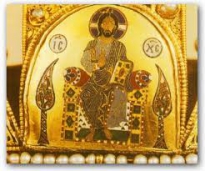Dogmatics II
Dogmatics is the branch of theology which tries give an analytical reflection on Christian doctrine. The goal of this course is to present the teaching of the Church concerning these topics in their historical context in order to develop the ability to formulate the christian doctrine as relevant as possible for the present age.
In the second semester we are going further with anthropology, chritology, soteriology, sacramentology, pneumatology and eschatology.
Competences
Specific competences
The student will be able to analyze and interpret the content of the Christian faith, and can apply it on different fields of ministry.General competences
After having acquainted with the main topics of dogmatics, the student will be able to confess the actuality of christian faith in the contemporary cultural medium.Course structure
-
The guilty (wicked) man; peccatum originale et actuale (original and actual sin).
-
The free and the servile will. „Simul iustus et peccator”. The pelagian controversy, human merit and divine grace.érdem és kegyelem.
-
Incarnation; divine and human natture of Christ; communicatio idiomatum.
-
The glorification of Christ: His resurrection and ascension. The triple duty of Christ.
-
The meanings of Christ's death: sacrifice, victory, absolution, moral example.
-
The nature and validity of the salvation in Christ: deification, justification, authentic being, political liberation, spiritual freedom.
-
The basic meanings of predestination
-
The problem of predestination in Arminianism, in the thoughts of Karl Barth. The thesis of Max Weber.
-
Definition of the sacraments: accedit verbum ad elementum et fit sacramentum. The meanings of the baptism. The problem of infant- and adult baptism.
-
The Lord's Supper: transsubstanciation, consubstanciation, memorialism.
-
Pneumatology: teh person and work of the Holy Spirit. Person or only divine power? Transpersonal reality; the controversy concerning His deity.
-
The characteristics of the Church: one, holy , catholic, apostolic. The visible and the invisible Church; Church and state; Church and world religions.
-
The Kingdom of God in the tension of "right now" and "not yet"; the controversy and theological relevance of the immortality of the soul.
-
The tension of "even today you will be with me" and "he will be resurrected on the last day". Universal salvation or the dualism of salvation and hell (reprobation)?
Total estimated time
Classroom study
- 2 hours/week (Course: 1 | Seminar: 1 | Practice: 0)
- 28 hours/semester (Course: 14 | Seminar: 14 | Practice: 0)
Individual study
- Time for studying course notes and bibliography: 75 hours/semester.
- Time for further documentation in libraries, electronic platforms, or on the field: 25 hours/semester.
- Time for preparing essays, papers, or documentation: 15 hours/semester.
- Time for personal tutoring: 5 hours/semester.
- Total individual study: 120 hours/semester.
- Total estimated time: 148 hours/semester.
Examination
The student must know the main concepts of dogmatics, their biblical, historical and philosophical background, and must evaluate them in a relevant way.
